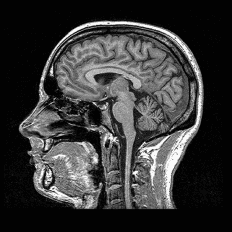EARLY DETECTION
DEXA Scan: A 15-minute scan for your bone density
21 November 2025

Written by
Ferdinand Skaugerum

Reviewed by

Most of us treat our health reactively. According to the STADA Health Report from 2023, almost 9 in 10 Europeans do not receive adequate preventive healthcare. We wait for a symptom, like pain, fatigue, or a new lump, before seeing a doctor.
A preventive DEXA scan does the exact opposite: it can give you a comprehensive look at your bone health and body composition before problems arise, potentially detecting silent bone loss (osteoporosis) when it can be easier to manage.
This article explains the power of a DEXA scan. We cover what it measures, who it's for, and how it empowers you to move from reactive care to proactive health.
Why don’t regular check-ups catch all serious diseases early?
Traditional healthcare is brilliant at solving acute or chronic problems. If you break your arm or get a sudden infection, or struggle from a chronic disease the system is designed to fix you.
Where it struggles is giving you a holistic view to better understand your body’s potential problems before they arise, such as with silent, slow-building diseases. Examples of these can be early-stage cancers, arterial plaque, or metabolic issues, which often develop for years without any symptoms. By the time you feel something is wrong, the problem may be advanced and much harder to treat. This is the gap where, for many health-conscious people, uncertainty and anxiety live.
While there are several check-ups today that seek to detect serious diseases early, many look at a limited set of data points at one point in time. By adding more data points from different sources (e.g., blood and imaging data), we can triangulate the results to increase the confidence in the findings.
Shift from reactive care to proactive health
Proactive health means using technology to understand your body's baseline and find potential issues early. It’s about giving you more clarity. Instead of wondering "What if?" you get a data-driven answer: "Here is your health status today."
This shift gives you the power to make informed decisions, whether that's peace of mind, specific lifestyle changes, or early, targeted medical follow-up.
What is a DEXA scan?
A DEXA scan, which stands for Dual-Energy X-ray Absorptiometry, is a fast and non-invasive test.
It is not an MRI or a CT scan. Instead, it uses two very low-dose X-ray beams to measure your bone mineral density. The radiation dose is extremely low, far less than a standard chest X-ray and comparable to the natural background radiation you experience on a short flight. An example: A DEXA scan exposes you to ca. 0.001 mSv. In comparison, taking a dental X-ray exposes you to ca. 0.005 mSv (ca. 5 times more), while a one-way flight from London to New York 0.032 mSv (ca. 30 times more).
What can a DEXA scan actually tell you?
A common question we get is, "What will you really see?" A DEXA scan is a screening tool designed to answer questions about your skeletal health. It is the gold standard for measuring your bone mineral density (BMD).
1. Your bone mineral density (gold standard)
At Ahead Health, we use the DEXA scan as the definitive gold standard for measuring your bone mineral density (BMD). This measurement is one of the most important tools for diagnosing osteoporosis (brittle bones) and assessing your future fracture risk. It gives you a precise, actionable number for your bone health.
2. Your body composition (a secondary benefit)
The DEXA scan also provides a detailed breakdown of your body composition, separating your weight into bone mass, fat mass, and lean muscle mass.
While this is a valuable data point, we believe our radiation-free full-body MRI scan provides a superior and more detailed analysis of body composition, especially when it comes to identifying dangerous visceral (organ) fat. Therefore, our primary clinical focus for DEXA is its world-class ability to assess your skeletal health.
Understanding your bone density T-score
Your bone density is reported as a "T-score." This number compares your bone density to that of a healthy young adult.
A T-score of -1.0 or higher: Normal bone density.
A T-score between -1.0 and -2.5: Osteopenia (low bone mass). This is an early warning sign that your bone density is below average, putting you at increased risk.
A T-score of -2.5 or lower: Osteoporosis. This indicates your bone density is low enough that you are at a high risk of a fracture.
When is a DEXA scan a good idea?
A preventive DEXA scan is for anyone who wants to understand their risk of bone loss, which is often called a “silent condition”.
Our clients for this scan typically include:
Women aged 50+ (post-menopause): The loss of oestrogen is a primary driver of rapid bone density loss.
Men aged 60+: Men are also at significant risk, just typically 5-10 years later than women.
Individuals with specific risk factors: This includes a family history of osteoporosis, long-term steroid use, smoking, heavy alcohol use, or a very low body weight.
Data-driven individuals: Anyone wanting a complete baseline of all key health markers, including their skeletal health.
Do you need symptoms or a referral for a DEXA scan?
No. In fact, the entire purpose of this preventive scan is to find your risk before symptoms start. You cannot feel bone loss. The first "symptom" of osteoporosis is often a bone fracture.
And because this is a private, preventive scan, you do not need a referral from your GP to book it. We provide direct access as part of a comprehensive health check-up. However, due to the radiation exposure and varying medical screening eligibility, our medical team will review your medical history and risk factors to confirm if this test is appropriate for you.
An Ahead Health preventive scan is for asymptomatic individuals who want a clear picture of their underlying risk to catch problems early.
Can I improve my T-score?
In some cases, a T-score can be improved. However, it depends on where your score falls within the risk range and your lifestyle. Building up your bone density may involve taking medications as prescribed, eating plenty of foods that contain calcium and vitamin D, and exercising regularly. You cannot necessarily reverse significant bone loss completely, but you can take steps to slow it down and, in some cases, improve your bone density.
Your action plan will depend on your specific score, and could include:
Weight-bearing exercise: Activities like walking, jogging, and strength training put stress on your bones, which signals your body to build more bone mass.
Calcium and Vitamin D: You must ensure you get enough calcium (the building block of bone) and vitamin D (which helps your body absorb calcium). Our medical team can discuss appropriate levels and potential supplementation based on your results.
Lifestyle changes: Quitting smoking and reducing alcohol consumption can also have a positive impact on your bone health.
You should always discuss a low T-score with your doctor to find the right actions for you. In cases of osteoporosis, your primary doctor may discuss medical treatments designed to slow bone loss or actively build new bone.
Your check-up at Ahead Health
At Ahead Health, a DEXA scan is not an isolated event. It is the central part of a single, efficient, and comprehensive health check-up. You get everything in one place, in one appointment. No fragmented referrals, no waiting weeks for different tests
How long does a DEXA scan take?
The DEXA scan typically takes around 15 to 20 minutes. It is one of the quickest and easiest ways to get profound insight into your skeletal health.
It's a scan, plus advanced blood diagnostics
The DEXA scan, together with our full-body MRI, provide a direct look at your body’s "hardware." Our advanced blood test provides the functional data, or your body's "software".
Our Ahead Advanced and Ahead Pro check-ups, for example, combine the full-body MRI with our extensive blood test that analyses over 80 biomarkers. This gives us a more complete picture by measuring your heart and metabolism, liver, kidneys, thyroid, and pancreas function, inflammation and immune activity, iron and oxygen balance for energy, plus essential vitamins and minerals.
Your results, explained by Swiss doctors
One of our core principles when writing health reports and action plans is clarity. We strive to give you actionable health insights, written in a calm, clinical, precise, plain language, You will not be handed a confusing disc of images or a lab report full of numbers.
Our team uses AI-assisted analysis to screen your results, which are then validated by board-certified Swiss physicians. You receive a clear, understandable report in plain language. If you book an MRI scan, you can, if you wish, have a one-on-one tele-consultation with a senior physician. They will walk you through the findings, answer all your questions, and explain to you the recommendations from your action.
What does a DEXA scan cost at Ahead Health?
The cost of a preventive check-up depends on your location, and whether it is included as part of a wider preventive health check-up. You need to refer to your own insurance company to check if it is covered in your plan. However, in most cases it is primarily self-pay.
We are fully transparent about our pricing. The cost depends on the depth of screening you choose. The DEXA scan itself costs CHF 135, and is offered as a crucial add-on scan to our three MRI packages:
Ahead Core (CHF 1’990): This is our foundational check-up, and includes the full-body MRI, the option to add previous blood results, a detailed health report and tailored action plan, and an optional physician consultation.
Ahead Advanced (CHF 2’490): This includes everything in Core, plus imaging longevity biomarkers, a gender-specific screening (prostate or ovaries), and an advanced blood panel with over 50 biomarkers.
Ahead Pro (CHF 3’549): This is our most comprehensive package for a complete data-driven baseline. It includes everything in Advanced, plus a hip & knee scan, a detailed brain analysis, and even more blood panels, looking closer at hormones and vitamins.
Regardless of which MRI package you choose, you can always add a specialised scan, such as the DEXA scan, a heart CT calcium score, or a Mamma MRI, for more focused risk analysis.
Why this matters
An investment in a preventive check-up is an investment in clarity. It provides a comprehensive, actionable baseline of your health today. It empowers you to stop worrying about the "what ifs" and start making informed decisions for your future.











